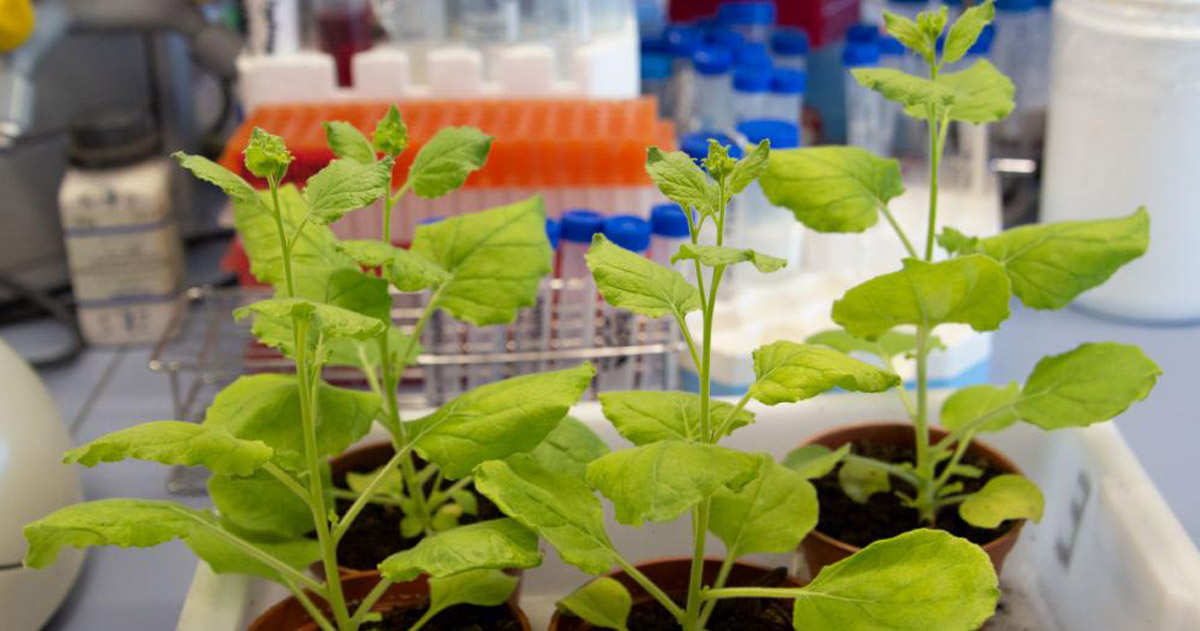
Researchers in Spain Use Biotech to Produce SARS-CoV-2 Vaccine in Plants
April 15, 2020| |
Researchers María Coca and Juan José López-Moya from the Spanish Research Council (CSIC) at the Centre for Research in Agricultural Genomics (CRAG) are using their expertise in plant biotechnology and virology to produce SARS-CoV-2 antigens to be used in vaccine development. The researchers will experiment with different expression systems from plants and have formed a team including an immunologist expert in coronavirus.
In 2019, María Coca has successfully engineered a plant virus to produce antifungal proteins inside plant leaves. This same strategy could be now used to produce SARS-CoV-2 antigens, not only in Nicotiana benthamiana, but also in lettuce plants. According to María Coca, antigen production in lettuce could make it possible to test for oral immunization.
"The production systems we propose would overcome some of the problems associated with other vaccine production systems, such as the difficulties to escalate production, or the need to isolate the antigen and to purify it. Plant systems are also free of other human pathogens, and, the production would be safe at a much lower cost in terms of time and money," explains María Coca.
Plants can be grown easily in developing countries that lack sophisticated protein production methods, therefore contributing large-scale solutions to this global crisis. CRAG researchers have also conducted the adaptation of plant-derived technologies to other platforms that can be adapted for the production of SARS-CoV-2 antigens, such as fast-growing yeast cultures where they have successfully produced antifungal compounds. With these approaches, SARS-CoV-2 antigens could be produced in a matter of days at industrial scales.
For more details, read the article in CRAG News.
| |
You might also like:
- Native Australian Plant Paves Way for Vaccine Development Against COVID-19
- Viable Vaccine Candidate for COVID-19 Developed Using Proprietary Plant-based Technology
- Plants as Antifungal Factories
Biotech Updates is a weekly newsletter of ISAAA, a not-for-profit organization. It is distributed for free to over 22,000 subscribers worldwide to inform them about the key developments in biosciences, especially in biotechnology. Your support will help us in our mission to feed the world with knowledge. You can help by donating as little as $10.
-
See more articles:
-
News from Around the World
- International Research Team Discovers Gene to Develop Fusarium Head Blight Resistant Wheat
- Five Countries Produce More than 90% of Biotech Crops Worldwide
- FSANZ Says New GM Soybeans Safe, Invites Public for Comments
- Rothamsted Research Makes Breakthrough in Fight Against Weeds
- Plant-based Tuna Rolls Out for Sushi Lovers
-
Research Highlights
- New Source of Powdery Mildew Resistance Found in Wild Wheat
- Vitamin E-enriched Sweet Corn Developed
-
Plant
- Gene Editing Could Yield Herbicide Tolerant, Non-GM Soybeans
- Cas-CLOVER, an Alternative to CRISPR-Cas9
-
Health
- Researchers in Spain Use Biotech to Produce SARS-CoV-2 Vaccine in Plants
-
Read the latest: - Biotech Updates (July 2, 2025)
- Gene Editing Supplement (June 25, 2025)
- Gene Drive Supplement (February 22, 2023)
-
Subscribe to BU: - Share
- Tweet

